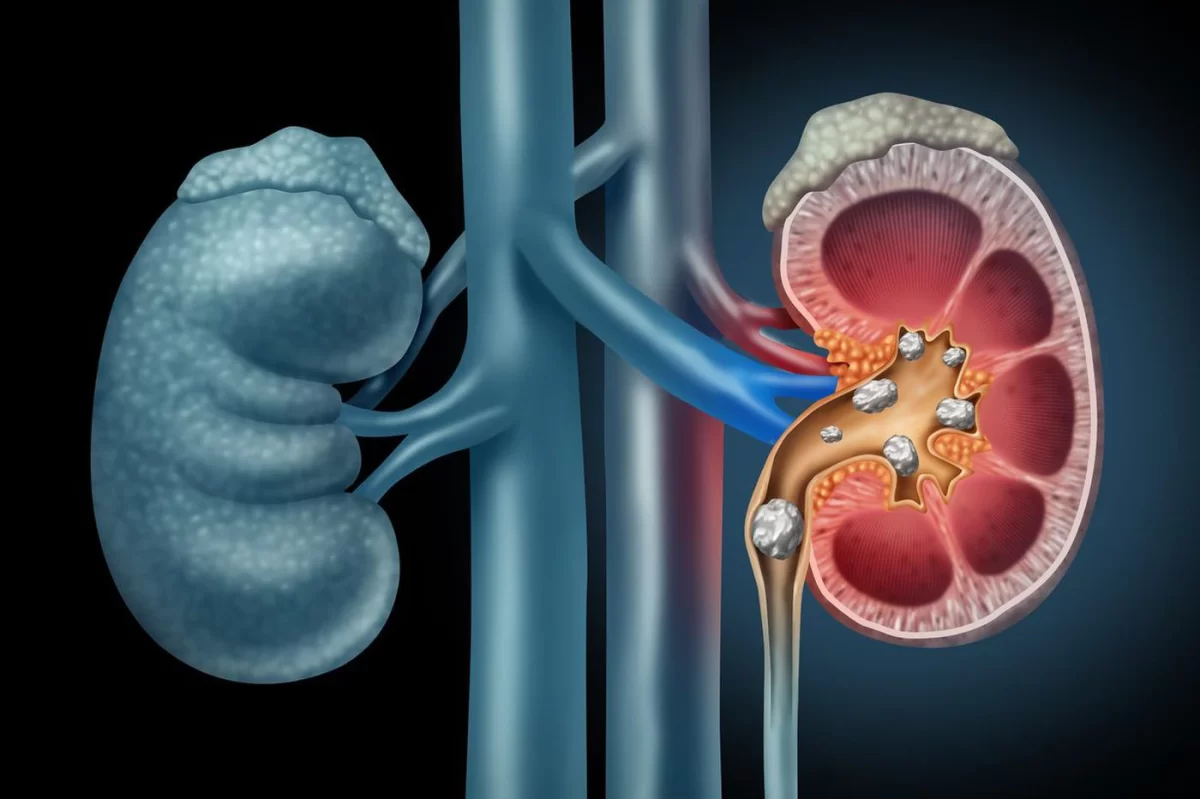Dealing with Kidney Stone Pain: Home Remedies and Medical Treatment

Kidney stones affect a significant portion of the population, causing intense pain and discomfort. Unfortunately, people often misunderstand them as a normal stomach ache and ignore the issue until it becomes unbearable. Therefore, this issue requires medical attention backed by some precautions.
This article aims to provide practical insights into kidney stone treatment in India, offering accessible solutions to alleviate discomfort and promote recovery for those grappling with this condition.
Though medical treatment cannot be avoided, experts also recommend following some home remedies to manage pain. Let us understand this in detail.
Understanding Kidney Stones
Kidney stones, or renal calculi, are crystalline mineral deposits in the kidneys or urinary tract. Considering the dietary habits of India, environmental conditions, and genetic predisposition, the prevalence of kidney stones has increased recently. These stones can vary in size and composition, leading to symptoms such as severe pain, nausea, vomiting, and difficulty urinating. Effective kidney stone treatment in India involves addressing the underlying causes and immediate symptoms through appropriate interventions.
Home Remedies for Kidney Stone Pain Relief
- Hydration: Adequate hydration is important for the human body to function well. Similarly, it is effective in kidney stones, too. Water helps flush out toxins and maintains urine dilution, reducing the risk of stone formation. Aim for 8-10 glasses of water daily. Adding lemon juice or cucumber slices enhances the detoxifying effect with their natural properties, aiding kidney stone prevention and alleviating discomfort associated with the condition.
- Warm Compress: Applying a warm compress or heating pad to the affected area relieves muscles and improves blood flow. Placing the warm compress over the lower back or abdomen, where the kidneys are located, for 10-15 minutes can effectively ease kidney stone pain. This simple remedy promotes relaxation and alleviates discomfort during painful episodes.
- Herbal Remedies: Certain herbs and spices can offer natural relief. Turmeric, ginger, and basil have been traditionally used in India for their anti-inflammatory and diuretic properties. They aid in reducing pain and inflammation associated with kidney stones. These herbs can be added to meals or brewed into teas for relief, providing a holistic approach to managing kidney stone symptoms.
- Dietary Modifications: The adage says, “Your body is what you eat.” Avoiding foods high in oxalates, such as spinach, nuts, and chocolate, is beneficial. Instead, a balanced diet of fruits, vegetables, whole grains, and lean proteins will reduce the risk of stone formation. Incorporating these dietary modifications promotes overall well-being and aids in kidney stone prevention, complementing other treatment strategies effectively.
- Physical Activity: Regular physical activity benefits kidney stone prevention and management. Exercise promotes blood circulation and helps maintain a healthy weight, reducing the risk of obesity-related factors that can contribute to kidney stone formation. Engage in walking, jogging, swimming, or yoga to support kidney health and overall well-being. Consult your healthcare provider before starting any new exercise regimen, especially if you have existing health conditions or concerns.
Know more about Tips for Kidney Health: What to Avoid
Medical Treatments for Kidney Stones
There are several options for kidney stone treatment in India:
- Pain Management: Over-the-counter pain relievers such as paracetamol or nonsteroidal anti-inflammatory drugs (NSAIDs) can temporarily relieve kidney stone pain. If these options do not manage your symptoms, your doctor may prescribe stronger pain medications.
- Alpha Blockers: Alpha-blockers are medications that relax the muscles in the ureter, the tube that connects the kidney to the bladder, facilitating the passage of kidney stones. These medications can help reduce pain and discomfort associated with stone movement and promote their expulsion through the urinary tract.
- Shock Wave Lithotripsy (SWL): Shock Wave Lithotripsy (SWL) is a non-invasive procedure that breaks kidney stones into smaller fragments using shock waves. This procedure uses a lithotripter, which delivers targeted shock waves to the stones, causing them to break apart. SWL is commonly used to treat smaller kidney or upper urinary tract stones.
- Endoscopic Stone Removal: In cases where kidney stones are large or causing significant obstruction, endoscopic procedures may be necessary to remove or break up the stones. Ureteroscopy involves passing a thin, flexible scope through the urethra and bladder into the ureter to locate and remove the stones. In some cases, laser lithotripsy may fragment larger stones for easier removal.
Conclusion
Kidney stone treatment in India combines surgical or medical attention with cautionary steps at home. Managing pain requires a multifaceted approach that addresses immediate symptoms and underlying causes. Along with medicines, doctors suggest home remedies such as hydration, warm compresses, and herbal remedies to alleviate discomfort and promote the natural passage of kidney stones.
Medical treatments such as pain management medications, alpha-blockers, shock wave lithotripsy, and endoscopic procedures offer additional relief and facilitate stone removal when necessary. If you’re experiencing kidney stone pain, consult a healthcare professional for personalised advice and treatment options tailored to your needs.








